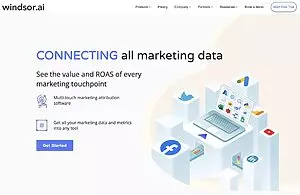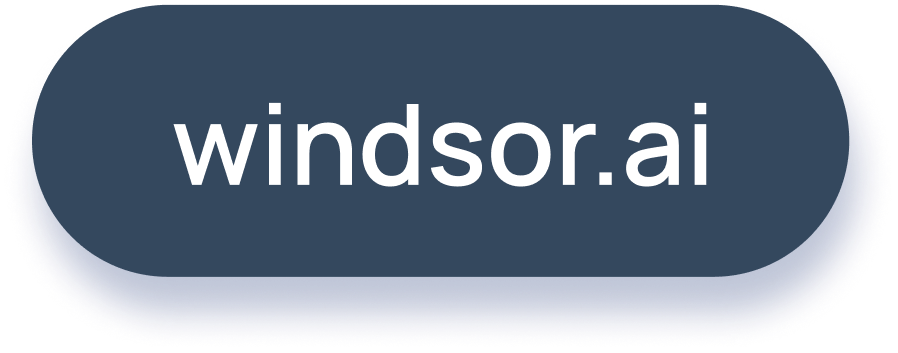Salesforce Marketing Cloud Alternatives & Competitors That Are More Accurate in Marketing Attribution

Are you looking for Salesforce Marketing Cloud alternatives? You are not alone! Other users of Salesforce Marketing Cloud software are also actively assessing competitors. Their goal is to identify a platform that can deliver the same or better experience in managing customer data, marketing automation, and multi-channel marketing attributions. This article will help you determine the best Salesforce Marketing Cloud competitor. We start by understanding Salesforce Marketing Cloud and why users are ditching it for competitors.
What is Salesforce Marketing Cloud?
Salesforce Marketing Cloud is an AI-powered, cloud-based digital marketing platform within the Salesforce Customer 360 ecosystem. Businesses can explore advanced cloud services to enhance their digital marketing capabilities and optimize their technological infrastructure.
Salesforce Marketing Cloud is used for market segmentation, personalized engagement, and campaign performance management and optimization. One of the most essential capabilities of Salesforce Marketing Cloud is marketing attribution, which is available mainly on the highest-priced edition of the platform. See Salesforce Marketing Cloud pricing below.
If you have used Salesforce Marketing Cloud for a while, you know it contains various components or modules. The modules include;
- Data Cloud
- Personalisation
- Engagement
- Account Engagement
- Intelligence
Since the components are models, you may find that your version of Marketing Cloud doesn’t have some of the features you want. If you want them added, you must upgrade your plan. The upgrades can increase your spending to levels your company is unwilling to pay. That is one of the reasons many users seek Salesforce Marketing Cloud alternatives. We address more reasons below.
Why Are You Looking for Salesforce Marketing Cloud Alternatives?
Our interactions with Salesforce Marketing Cloud users reveal many force factors to make the switch. The most critical forces for change include:
- Cost – Salesforce Marketing Cloud is expensive for many small businesses, which comprise most of its users. Prices are charged per user.
- Complexity – The platform is complex. As a result, it attracts high set-up and training costs. It is also complex to onboard new users within the organization.
- Maintenance – Users face complexities and outages while maintaining the system.
- Inaccuracies – The platform has marketing attribution inaccuracies due to a single data source (Sales Cloud) and attribution to a single primary campaign. Marketing teams can also enter the lead sources manually, adding to the inaccuracies.

Of the four reasons, the major one is the inaccuracies, which is why you should consider Salesforce Marketing Cloud alternatives. While no one size fits all, it is crucial to consider Salesforce Marketing Cloud competitors with a more accurate marketing attribution model or various models. Attributing all sales to a single ‘primary campaign’ is inaccurate and masks your view of the customer journey. That can lead to suboptimal customer journey orchestration decisions, among other choices. The Salesforce Marketing Cloud alternatives we reveal next will help you solve each problem when using Marketing Cloud.
The Top Three Salesforce Marketing Cloud Alternatives
Windsor.ai Marketing Data Attribution Software – The Top Salesforce Marketing Cloud Alternative
You probably know Windsor.ai for its no-code data integration solutions with many data source connectors and destinations. However, Windsor.ai does more than data integrations. Windsor.ai is also a marketing data attribution Software and the best Salesforce Marketing Cloud alternative.
What is Windsor.ai Marketing Data Attribution Software?
Windsor.ai Marketing Data Attribution Software is a multi-touch marketing attribution tool that helps you see the value and ROAS of every marketing touchpoint. It enables you to optimize marketing ROI by looking at the customer journey. With 70+ data source connectors capable of integration with Windsor.ai Marketing Data Attribution Software, you can analyze customer journeys across multiple channels. The software also enables a rich marketing attribution process that combines online and offline data. Additionally, you can conduct attribution analytics across various devices.
Salesforce Marketing Cloud vs Windsor.ai Marketing Data Attribution Software
Windsor.ai Marketing Data Attribution Software differs from Salesforce Marketing Cloud in several ways, but the two most important differences are in the data sources and the model used for marketing attribution.
Windsor.ai Data Sources for Marketing Attribution
Starting with the data sources, Salesforce Marketing Cloud uses data from the Data Cloud. This is a solution by Salesforce to capture customer data across the engagement channels that are native to Salesforce. This means that Salesforce Marketing Cloud relies only on CRM data and information you can manually enter into the platform. Information that is entered manually includes the marketing campaigns. For instance, if your sales lead came from a seminar or conference that you attended, then you manually record that information into the platform.
For Windsor.ai Marketing Data Attribution Software, CRM is just one of the data sources. Depending on your subscription plan on Windsor.ai, you can use up to 3 data sources in the Standard plan and up to 7 in the Professional Plan. The Enterprise Plan will give you up to 200 data sources. Among these data sources, you can find analytics data sources like Google Analytics 4, Adobe Analytics, and AppsFlyer. Do you notice the opportunity to include all your data sources in the marketing attribution model? That is why Windsor.ai Marketing Data Attribution Software is an excellent Salesforce Marketing Cloud competitor.
Windsor.ai Marketing Attribution Modeling
Salesforce Marketing Cloud uses a single-touch marketing attribution model. It can be first-touch or last-touch attribution; Salesforce allows you to choose. However, you can only attribute the sales to one customer interaction. Single-touch modeling is a significant source of severe inaccuracies in the marketing attribution model of Salesforce Marketing Cloud. That is because the customer journey involves multiple steps, such as seeing a PPC ad, searching reviews, doing a web search, etc. When you attribute sales to marketing channels using single-touch modeling, you assign all importance to a single step in the customer journey. That is why Windsor.ai uses multi-touch marketing attribution modeling.
Another fact about Windsor.ai’s multi-touch model is that it is based on Markov attribution modeling, meaning that attribution is based on probabilities. You can learn more about the model on our website. Windsor.ai believes that the Markov attribution model is better in marketing attribution, making Windsor.ai the best alternative to Salesforce Marketing Cloud.
Windsor.ai Pricing and Value for Money
Windsor.ai Marketing Data Attribution software is the best Salesforce Marketing Cloud alternative because it is cheaper yet more powerful. The Standard plan is only $549 monthly, billed annually, with unlimited users. The Professional plan gives you room for more data sources and is $699. Comparatively, the competitor starts at €1,250 per month for one user. The starting plan is not fully featured, so you need to pay more for more features. The competitor is expensive, yet the marketing attribution model is less powerful. It is clear that Windsor.ai, as the leading Salesforce Marketing Cloud alternative, gives you more value for money.

Adobe Analytics – Marketing Measurement and Attribution
The next Salesforce Marketing Cloud competitor that you should consider is Adobe Analytics. When you land on the Adobe Experience Cloud website, you may need clarification on what specific product to look for because there are many analytics solutions on the platform. The primary product we are looking at is Adobe Analytics – Marketing Measurement and Attribution.

What is Adobe Analytics?
Adobe Analytics is a cloud-native data analytics platform for businesses. The platform lets you analyze data from any digital point of the customer journey. You can use Adobe Analytics for various purposes, including improving customer engagement and predictive analytics. Adobe Analytics contains multiple solutions, but our interest is in the attribution solution.
Salesforce Marketing Cloud vs Adobe Analytics
Adobe Analytics shares various similarities with Salesforce Marketing Cloud, including analyzing cloud-based native data and complexity, which means you still require weeks of training and certification. However, Adobe Analytics is still a worthy Salesforce Marketing Cloud Competitor because of the attribution modeling approach.
Adobe Analytics Data Sources for Market Attribution
The data source is Adobe Experience Cloud. That means you must be subscribed to the cloud to capture your data before you can begin utilizing analytics and marketing attribution modeling. However, this Salesforce Marketing Cloud alternative captures more than CRM data. The data includes other information, such as device information, for more advanced attribution.
Adobe Analytics Marketing Attribution Model
Adobe Analytics lets you choose the model to apply to your data. That means you can select models like first-touch, last-touch, and multi-touch. The freedom to choose the suitable model for your needs is fundamental in highlighting this platform as a better Salesforce Marketing Cloud alternative.
Adobe Analytics Price and Value for Money
Pricing information is one of the areas in which this Salesforce Marketing Cloud competitor needs to catch up. Adobe Analytics does not publish pricing information on the website. To do so, you must complete the pricing page form and talk to sales. Nonetheless, the pricing is expected to be in the same range as that of Salesforce Marketing Cloud.
Hubspot Marketing Hub – Multi-Touch Marketing Attributions
The third Salesforce Marketing Cloud competitor and alternative is Hubspot Marketing Hub. While the platform charges based on the number of users, it is relatively cheaper per user and uses multi-touch attribution, making it a critical Salesforce Marketing Cloud alternative.
What is Hubspot Marketing Hub?
Marketing Hub is a marketing automation solution by Hubspot. It helps users attract more prospects and increase conversions. Marketing Hub is also helpful in marketing attributions.
Salesforce Marketing Cloud vs Marketing Hub
Salesforce Marketing Cloud vs Hubspot Marketing Hub
Marketing Hub differs mainly from the Salesforce Marketing Cloud competitor in terms of marketing attribution approaches and cost. The differences are discussed below in brief.
Hubspot Marketing Hub Data Sources for Marketing Hub
Marketing Hub captures data from multiple sources, mainly CRM and content from your digital marketing campaigns. The data is analyzed from the native cloud.
Hubspot Marketing Hub Marketing Attribution Model
Unlike its Salesforce Marketing Cloud competitor, Hubspot Marketing Hub uses multi-touch attribution. While different models apply to various needs, multi-touch marketing attribution is undoubtedly more accurate, making the platform an essential alternative.
Hubspot Marketing Hub Price and Value for Money
Marketing Hub’s price starts at $800 monthly, but you need more for marketing attribution features. For that, you must be on Marketing Hub Enterprise, which starts from $3600/month and allows five users. Additional users will cost $75 per month. The price of this Salesforce Marketing Cloud alternative makes sense if you need three or more users. However, be mindful that you will incur an onboarding fee of $3000 if you are on the Marketing Hub Professional Plan or $7000 if you select the Enterprise plan.

Salesforce Marketing Cloud Alternatives: Which is the Best?
Based on this analysis, the best Salesforce Marketing Cloud alternative is Windsor.ai Marketing Data Attribution Software. Windsor.ai is cheaper than all the competitors. Using the Markov model in multi-touch marketing attribution enables you to value each touchpoint. More importantly, Windsor.ai Marketing Data Attribution Software allows you to connect to multiple data sources, including data analytics tools like Google Analytics, to capture data from all your marketing channels, CRM, and campaigns. With the tool, you can also display the dashboard in your standard business intelligence tools like Power BI and Looker Studio, so you don’t require thousands of dollars in training and onboarding.



